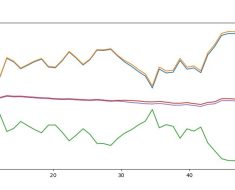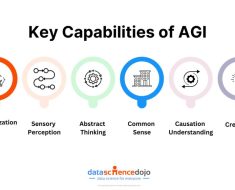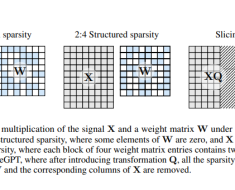Generative AI: The New Frontier in Video Game Development and Its Ripple Effects

The gaming industry is on the brink of a significant transformation, driven by the integration of generative artificial intelligence (AI) that promises to redefine video game development and player experiences. With companies like Microsoft Xbox collaborating with Inworld AI, the boundaries of what is possible in gaming are being pushed further than ever before. These partnerships are pioneering the development of non-playable characters (NPCs) with more natural, evolving dialogues, creating a dynamic, player-driven narrative landscape.
At the heart of this revolution is the enhancement of game replayability, retention, and revenue, as AI-driven NPCs offer a level of interaction that adapts and grows with each player’s unique journey through a game. Industry giants such as Nvidia, whose success has been bolstered by the synergy between high-performance chips and gaming, are acknowledging the transformative potential of AI in reshaping game development.
This is not just about improving game mechanics; AI is poised to streamline the entire game production process. From initial storyboard design to NPC dialogue creation, AI can automate tasks, allowing developers to channel their creativity into crafting more immersive elements of games. This could result in faster delivery of high-quality games, though it’s not guaranteed to reduce production costs. With executives projecting that AI could manage over half of game development within the next decade, the industry is staring at a seismic shift in its landscape.
However, this technological leap comes with its own set of challenges and opportunities. The unpredictability of AI and the potential erosion of human creativity in game design are concerns that cannot be overlooked. As the industry adapts, there’s a growing demand for specialized training and talent to keep pace with these advancements. Issues such as talent acquisition and game localization are now seen as growth opportunities within the sector.
The integration of AI into computer graphics has led to advancements that extend beyond gaming, impacting various industries with improved image generation, enhancement, and interpretation. AI has unlocked new creative possibilities, enabling real-time image editing, and enhancing experiences in virtual reality (VR) and augmented reality (AR). As AI’s role in computer graphics continues to expand, it promises more advanced visualization techniques, real-time rendering, and personalized content creation.
AI’s reach extends across multiple domains, from creating sophisticated devices that solve real-world problems to developing personal virtual assistants and robots capable of operating in hazardous environments. Its features, including deep learning, machine learning, and natural language processing, have found applications in healthcare, business, education, and social media. Google’s custom-designed Tensor chip exemplifies AI’s evolution, focusing on pattern recognition and automation, while prioritizing security and privacy.
AI video generators are another frontier, transforming visual content creation with minimal human input. Utilizing techniques like Generative Adversarial Networks (GANs) and Neural Style Transfer, these tools produce realistic videos and have implications for education, film, and journalism, offering interactive and dynamic visual experiences.
The United States’ gaming industry has greatly benefited from technological advancements, with AI at the forefront of providing players with enhanced experiences and developers with powerful creation tools. As technologies like augmented reality and blockchain continue to merge with gaming, the future of video game development is poised for further innovation and growth.
In 2023, the advent of generative AI tools has led to significant changes, including layoffs at major game studios such as Epic Games, Unity, and Riot Games. The development of such tools by Microsoft and Inworld AI has sparked concerns over job security and content quality in the gaming sector. With AI models in China already replacing human illustrators, the fear of job displacement is palpable among game developers and industry talent, underscoring the urgent need to address the long-term impact of AI adoption in game development.





